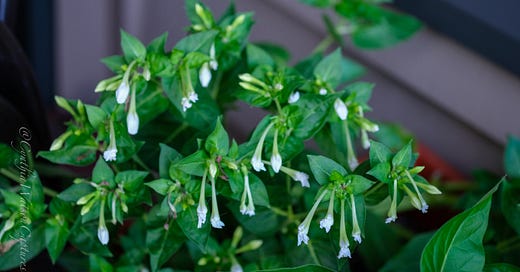A powerful consequence of working in education at any level or in any institution is working with specialists with such different knowledge from our own. Thirty years at the National War College offered the privilege of learning from a few colleagues with pure theoretical interests but many, many more with vast experience at the intersection of identifying challenges and acting to address the questions confronting policy makers on our behalf.
One of the most experienced Russia hands sent me the following in response to yesterday’s musings on Vlad and nuclear weapons.
“Cynthia,
A good piece on the dilemma of nuclear weapons, the most powerful instrument of war which nonetheless must never be used, as it will almost certainly lead to the destruction of the user as well as the target.
One note: Russia's last published nuclear doctrine reserves use of nukes for a response to a nuclear attack, except in the case when a conventional attack threatens the existence of the Russian state. The term used is "statehood" (gosudarstvennost'), not sovereignty.
The precise wording aside, the doctrine is ambiguous, perhaps intentionally so. At what point is the very existence of the state threatened? When a certain percentage of territory is lost? Or when there is a credible threat of regime change, i.e. Putin's removal? We simply do not know. There is certainly a point at which even sober Russian military leaders might resort to nukes, since their conventional forces are clearly outmatched by those of the West in aggregate. But so far they have been successful in their divide and conquer approach.
The Ukrainian attack in Russia is exciting and emotionally satisfying so far, but it is still early days. Russia may have been surprised and clumsy, but its forces and resources are massive, and sometimes mass itself is enough in war.
So we will see. I am still rooting for Ukraine, but not detached from reality.”
I find it chilling that we can’t parse the meaning of the document cited above—as if senior specialists weren’t trying! Like many in this country, some forms of ambiguity worry me a great deal while others are ok. In a political system so dependent upon personality rather than rule of law, we don’t know what the statements mean in practice. The Soviets, for example, had a beautiful constitution but rarely executed its meaning as we read it. They acted in a situationally-dependent manner. That is terrifying when it comes to nuclear weapons but hopefully we are no where near their use.
But, we simply don’t know for sure.
I too ponder whether the Ukrainian incursion can beat back the Russians, for exactly those reasons cited above: Vlad has lots and lots of stuff to throw at the Ukrainians. Perhaps he is running shorter on recruits than he would like but the disproportionately huge natural resources makes up for a lot of the human numbers. He does still have the eleventh largest economy in the world to fund this effort. Real gdp growth fell by 1.2% in 2022 but increased by 3.59% last year as he worked around sanctions. This year’s growth is predicted, according to Statista.com, as 3.16%.
Russia is poorer than western Europe but considerably richer than Ukraine with gross domestic products of $2.7 trillion versus $150.6 billion, respectively. In particular, Ukraine deeply depends on foreign assistance since so much of its wheat export was destroyed by disrupting the labor market, transportation, and other factors.
Kyiv has the will to fight which is an amazing superpower itself but will not necessarily win the day. Ukraine is certainly being destroyed brick by brick, bomb by bomb but can the will to survive as a nation outlast Vlad’s aspirations and lies? Oddly, fighting at home, with the passion that instills, for the survival of one’s country may be more of an advantage here than we realize as Ukrainian nationalism appears quite strong, even years into this war.
How will it end? Why will it end? When will it end?
I have no idea nor does this truly top analyst of Russia, Ukraine, and the former Soviet sphere who has spent sixty years on the problem, speaks the regional languages fluently, and literally knew Vlad earlier in life. If this fellow doesn’t know, I remain uncertain as I watch things unfold but recognise no one can answer my questions with certainty—probably even Vlad the Impaler.
We need keep looking at the data available as we make decisions about our support, imposing obstacles, and overall reacting to this mess. In the end, our national interests will likely dictate our actions rather than anyone else’s as that is how global politics often evolves. But, we are in a weird world these days.
Time is your most valuable resource so thank you for spending time on this newsletter. I welcome thoughts, rebuttals, and further questions. Thank you to the subscribers whose financial commitment is more important than you realize.
The summer draws to a close in the northern hemisphere. I wish you some rest and a respite from the heat. Too soon we will bemoan the cold, I suspect, but I am happy taking it one day at a time as the weekends allow.
Be well and be safe. FIN
Statista Research Department, “Economy of Russia—statistics and facts”, www.statista.com, retrieved at https://www.statista.com/topics/7835/economy-of-russia/
World Bank, “Ukraine Overview”, Www.worldbank.org, 1 August 2024, retrieved at https://www.worldbank.org/en/country/ukraine/overview#1




